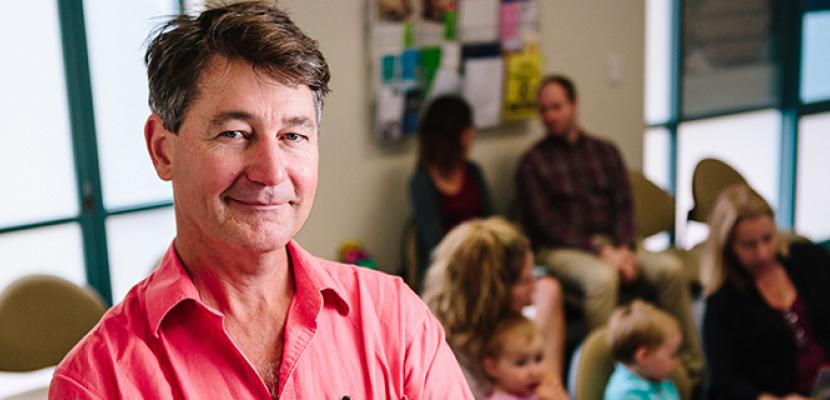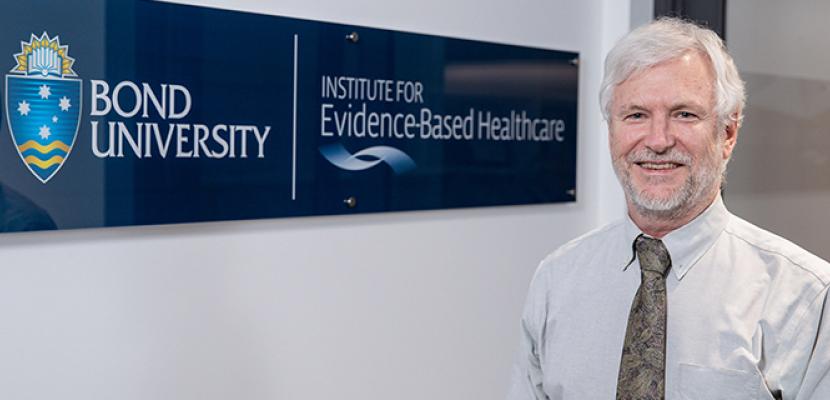
A diagnosis can come as a relief to the suffering. It provides an answer to long-held questions and promises a solution to problems being faced.
But how can modern medicine, which has eradicated global diseases and cured once-debilitating conditions, be too much of a good thing?
All over the world people are becoming more concerned about this problem of too much medicine,” explains Bond University researcher Dr Ray Moynihan, NHMRC Early Career Fellow and author of Selling Sickness.
“There are estimates from the United States and the Organisation for Economic Co-operation and Development (OECD) that perhaps 20 per cent of what’s spent in healthcare is not actually improving health outcomes and may in fact be doing a lot of harm due to unnecessary care, and the burden and risks that places on patients.
“As health spending continues to increase dramatically, there is growing interest in how to wind back the unnecessary tests, pills, procedures and diagnoses, while not losing the necessary.”

It’s a topic that Professor Paul Glasziou has dedicated his career to. The Director of Bond’s Institute for Evidence-Based Practice recently co-authored a study that estimated that up to 40 per cent of diagnoses prostate cancer cases in Australia could be overdiagnosed. In other words, the men tested, diagnosed and treated would never have gone on to develop symptoms in their lifetime.
Unnecessary diagnosis can lead to harmful procedures and treatments like, in the case of prostate cancer, surgery, radiotherapy and hormone therapy.
“The problem is much bigger than cancer,” says Professor Glasziou.
“It affects many conditions, including ADHD, Chronic Kidney Disease, and Gestational Diabetes – and is making many people into patients unnecessarily.
“This is not the only problem affecting sustainability of health systems – but evidence suggests it’s a big one – and Bond researchers, supported by funds from the National Health and Medical Research Council, are among world leaders in this field.”

In addition to research dedicated to understanding the extent and causes of overdiagnosis, work is also focusing on tackling the problem. Bond researchers recently mapped all possible drivers and potential solutions, published in peer-reviewed medical journal BMJ.
Solutions could include better evaluation of any potential harms of new diagnostic tests, a more cautious approach to expanding disease definitions – and therefore labelling more people as patients – as well as campaigns to raise awareness about the issue of overdiagnosis.
It’s a step towards a more sustainable healthcare system, which may have a broader impact on other global issues.
“When we put this problem of too much medicine into the wider context of the climate emergency the world is facing, winding back medical excess can be a win-win-win,” says Dr Moynihan.
“Better for people who avoid harm, better for the health system which avoids waste, and better for the planet due to less unnecessary emissions.”

In 2018 Bond University launched the independently-judged Sustainability of Healthcare Awards and Colloquium to promote best practice and celebrate the work of leaders in sustainable healthcare.
Researchers at Bond’s Institute of Evidence-Based Healthcare are leading the way in understanding and tackling overdiagnosis and have initiated an international conference, called Preventing Overdiagnosis, which is co-sponsored by the World Health Organisation.
Sustainability in healthcare is a global problem and it may be hard to imagine a completely sustainable system, says Dr Moynihan, but the goal is all about balance.
“A sustainable healthcare system would pride itself on delivering the right amount of healthcare – not too much, and not too little,” he says.
Bachelor of Health Transformation
Bond's new degree is preparing future leaders in healthcare.